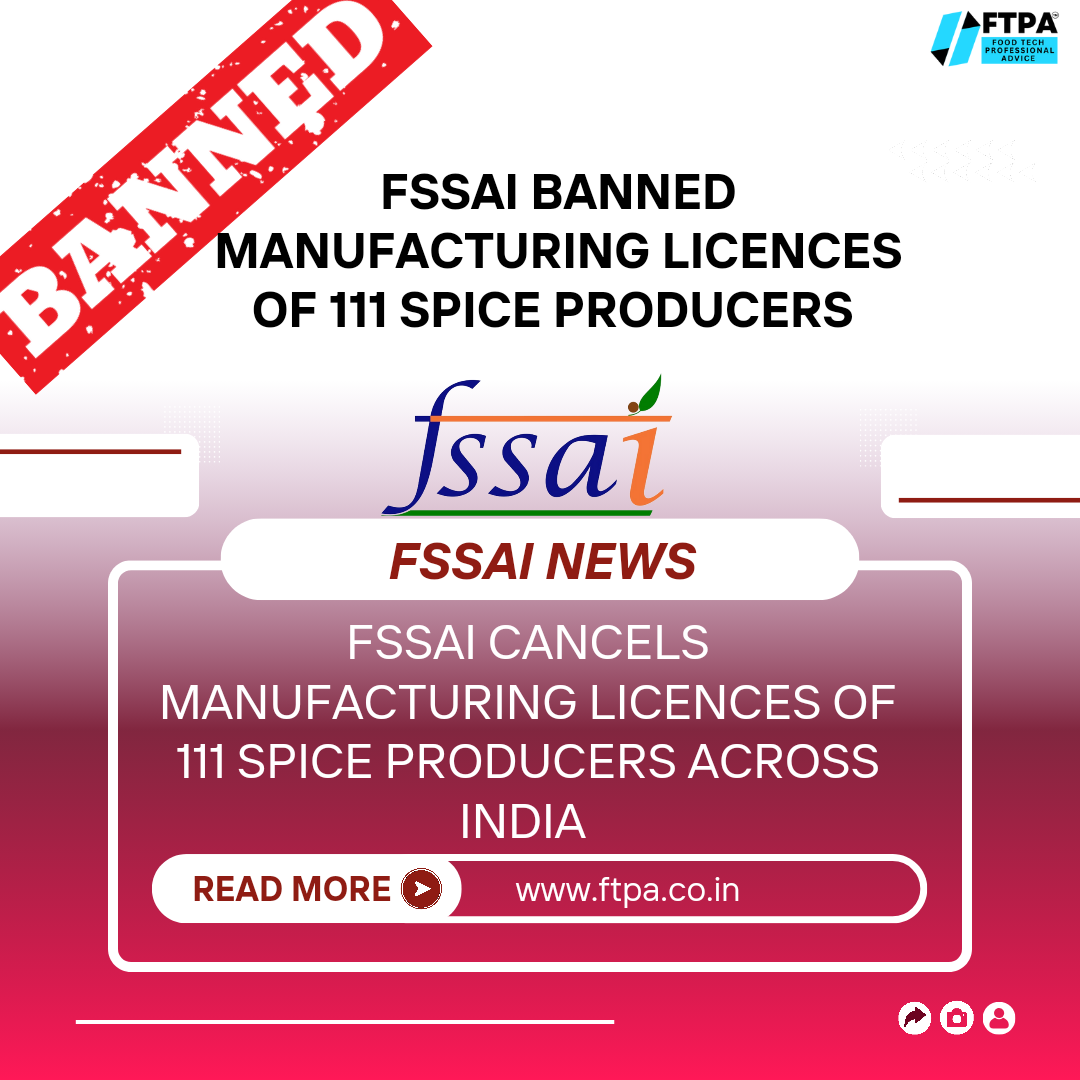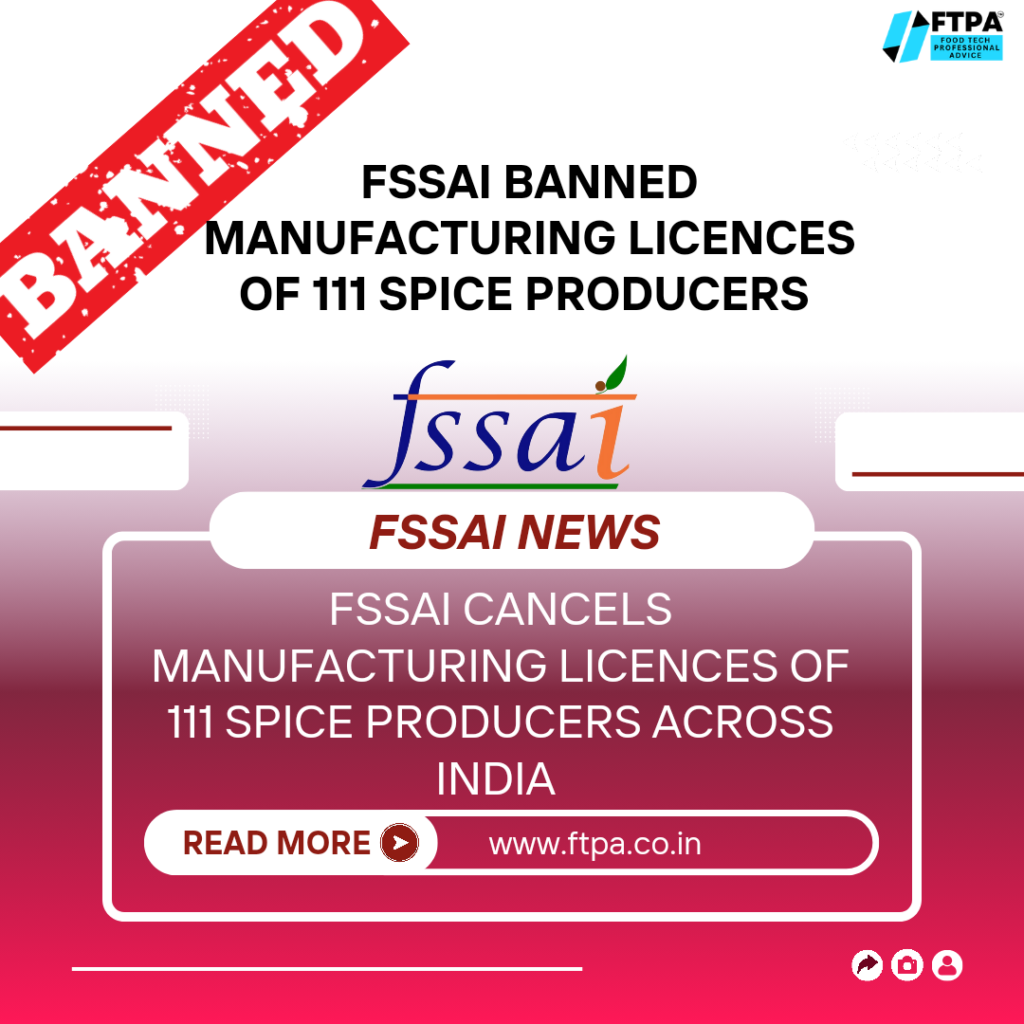
FSSAI Cancels Manufacturing Licences of 111 Spice Producers Across India Following Ethylene Oxide Scandal and Stringent Safety Inspections
In a major crackdown on food safety violations, the Food Safety and Standards Authority of India (FSSAI) has cancelled the manufacturing licences of 111 spice producers across the nation. This decisive action follows the detection of the carcinogenic pesticide ethylene oxide in several popular Indian spice brands by regulatory authorities in Singapore and Hong Kong in April. The banned brands included industry giants MDH Pvt. Ltd and Everest Food Products Pvt., prompting FSSAI to launch an extensive inspection and testing campaign to ensure the safety of spices in India.
The Spark: International Bans
The issue came to light when Singapore and Hong Kong imposed bans on MDH and Everest spices after ethylene oxide, a chemical linked to cancer, was allegedly found in multiple products. These international actions raised alarms about the potential health risks associated with some of India’s most widely used spices. Consequently, FSSAI initiated a series of safety checks, collecting samples from various cities across the country.
The Investigation Process
Over the past few months, FSSAI has been rigorously testing spice samples to detect any violations of food safety standards. As per a recent report, the regulatory body tested 2,200 samples, out of which 111 failed to meet the basic quality standards required for safe consumption. The licences of these non-compliant spice producers were revoked immediately, and they were instructed to halt production.
The ongoing testing process involves analyzing a total of 4,000 samples, including products from renowned brands such as Everest, MDH, Catch, and Badshah. The comprehensive testing regimen includes checking for ethylene oxide, moisture content, insect and rodent contamination, heavy metals, aflatoxins, and pesticide residues.
Detailed Testing Outcomes
In May, FSSAI conducted detailed tests on samples from MDH and Everest. The investigation included 34 samples, with nine from Everest’s facilities in Maharashtra and Gujarat, and 25 from MDH’s facilities in Delhi, Haryana, and Rajasthan. These samples were scrutinized at NABL-accredited laboratories, focusing on multiple safety parameters. The tests confirmed the absence of ethylene oxide, providing some reassurance about the safety of these specific batches.
Despite these findings, FSSAI’s comprehensive testing campaign is far from over. With 4,000 samples to be analyzed, there remains the possibility of additional licence cancellations as the authority continues to uphold stringent food safety standards.
Challenges and Implications
One of the challenges faced by FSSAI in this massive undertaking is the limited number of testing centres, which has slowed down the process of identifying and addressing non-compliant producers. However, the authority is determined to overcome these hurdles, emphasizing its commitment to ensuring public health and safety.
FSSAI Chairperson Dr. Rita Teotia underscored the importance of this initiative, stating, “Our primary responsibility is to ensure the safety and well-being of consumers. The cancellation of these licences sends a clear message that non-compliance with food safety standards will not be tolerated.”
Reactions and Future Prospects
The cancellation of licences has been widely welcomed by consumer rights groups and industry experts. Many believe that this move will lead to higher standards within the spice industry and restore consumer confidence in the safety of Indian spices.
Consumer advocacy groups have praised FSSAI’s proactive measures, highlighting the need for continuous monitoring and stringent enforcement of food safety regulations. Industry experts also see this as a necessary step to protect India’s reputation in global markets, especially since spices are a significant export commodity.
Moving Forward
The affected spice producers have been given a stipulated period to rectify the identified issues and comply with FSSAI standards if they wish to reapply for their licences. This window offers an opportunity for producers to align their practices with the required safety protocols and regain their licences.
FSSAI has urged consumers to remain vigilant and report any concerns related to food safety to the authority. The agency continues to emphasize the importance of compliance with food safety regulations and is committed to taking all necessary actions to protect consumer health.
As the investigation progresses, FSSAI’s stringent measures are expected to set a new benchmark for food safety in India. This significant enforcement action not only aims to eliminate substandard practices but also seeks to ensure that only high-quality, safe products reach consumers, thereby safeguarding public health and maintaining the integrity of India’s food supply chain.
FSSAI Cancels Manufacturing Licences of 111 Spice Producers Across India Following Ethylene Oxide Scandal and Stringent Safety Inspections
HACCP LEVEL 4 Training Program




